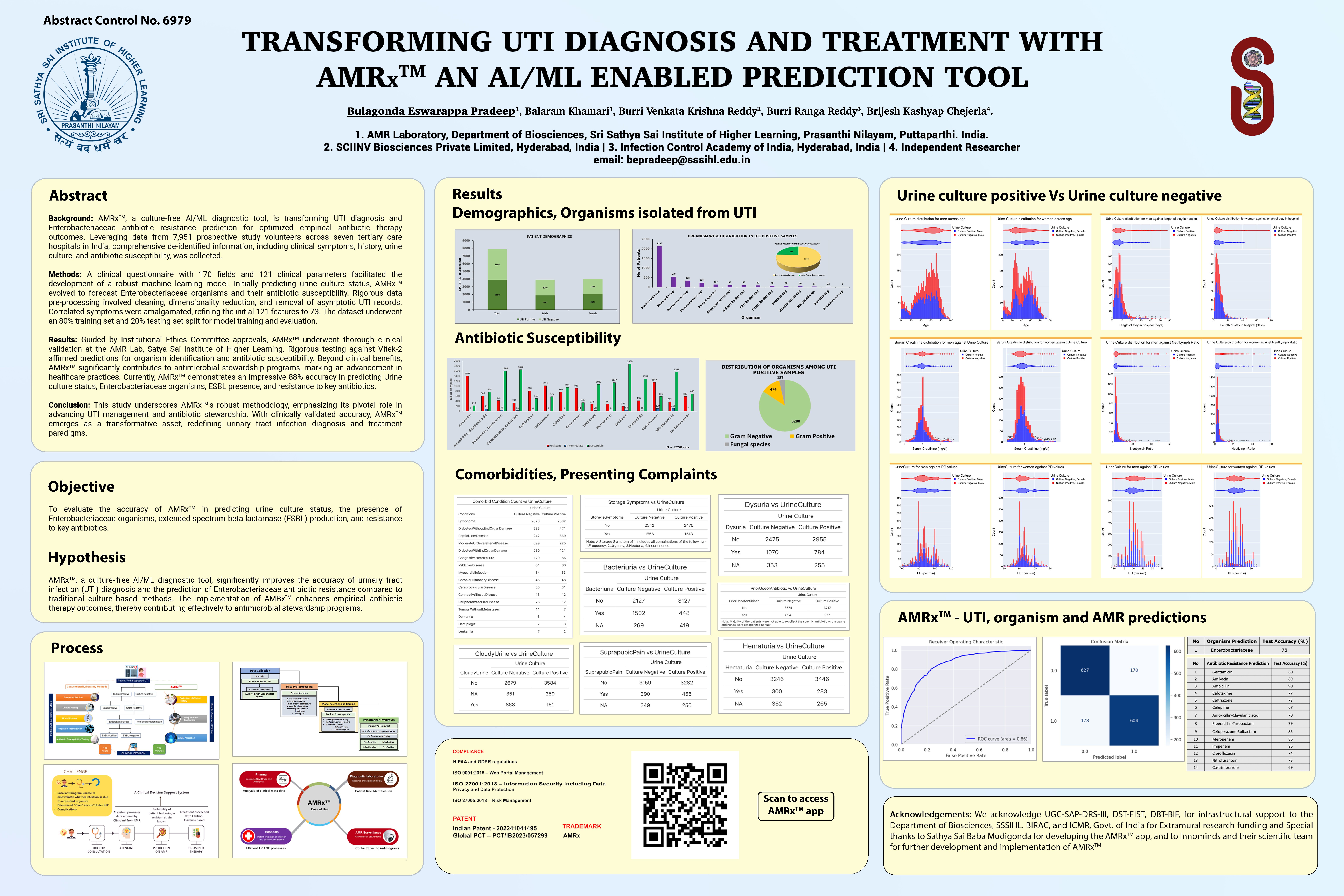The Anti-Microbial Resistance (AMR) laboratory investigates the fundamental principles of AMR acquisition and their dissemination among clinically relevant pathogenic bacteria. This knowledge is further utilized in the development of rapid, point of care diagnostic tools to support bed-side treatment
of drug-resistant bacterial infections.
Trans-disciplinary approaches, representing an amalgamation of wet lab experiments, computational analyses and datascience are pioneered in this laboratory, to unravel the mechanisms involved in the emergence and spread of AMR. This approach is bolstered by the team members and collaborators of AMR laboratory, whose expertise ranges from managing a bio-repository of >10000 clinically isolated bacterial pathogens, to performing cutting-edge computational biology research, involving genomics and transcriptomics.
Projects which are ongoing in the laboratory include the detection of Heteroresistance in Enterobacteriaceae, exploration of Co-resistance and collateral sensitivity mechanisms among Uropathogenic bacteria, in silico genomics based drug resistance prediction and surveillance of bacterial load among water samples collected from various sources. This pioneering work has attracted collaborators from several industries and institutes of international repute. The collaborative ethos of AMR lab is evident in the technologies, developed by them in collaboration with industrial partners including AMRx, an AI/ML based UTI and AMR prediction tool (Patents filed). This technology has been successfully commercialized.
AMR lab is ably supported by multiple grants from various governmental and private agencies. With access to well-equipped wet lab facilities and robust in silico data analysis pipelines and computational power, AMR laboratory continues to propel the research in aiding the fight of humanity against the silent pandemic (AMR).

